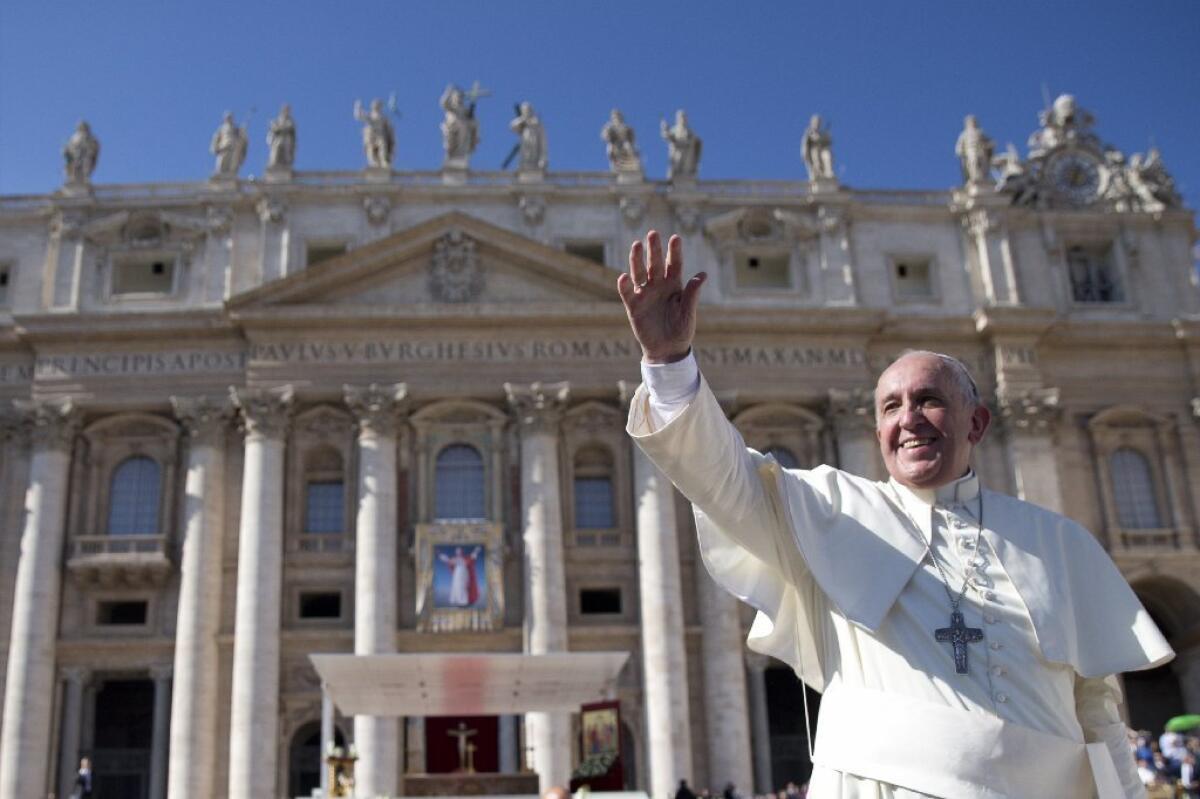Opinion: Conservative Catholics conveniently discover collegiality

- Share via
One of the major themes of the Second Vatican Council – the 1960s gathering of Catholic bishops better known for its ecumenical outreach – is the notion of “collegiality.”
To quote the Dogmatic Constitution on the Church approved at the council: “The order of bishops, which succeeds to the college of apostles and gives this apostolic body continued existence, is also the subject of supreme and full power over the universal Church, provided we understand this body together with its head the Roman Pontiff and never without this head.”
Liberal Catholics saw the notion of a “college of bishops” (even one with the Bishop of Rome as its head) as a welcome departure from the pre-Vatican II notion of the pope as an absolute monarch with bishops as his functionaries.
Conservative Catholics, on the other hand, disliked collegiality.
Not anymore.
Recently, conservative Catholics cheered when some bishops at the Vatican’s recent Synod on the Family rebelled against gay-friendly language in a preliminary document thought to have Pope Francis’ support.
They also have protested at the demotion of American Cardinal Raymond Burke, a traditionalist known for his view that pro-choice Catholic politicians should be denied Holy Communion. (Burke is also famous for dressing up like a Renaissance cardinal, a habit that probably didn’t endear him to a pope who gets his vestments off the rack.)
Ross Douthat, the conservative Catholic New York Times columnist, recently warned of the pope that “if he seems to be choosing the more dangerous path — if he moves to reassign potential critics in the hierarchy, if he seems to be stacking the next synod’s ranks with supporters of a sweeping change — then conservative Catholics will need a clear-eyed understanding of the situation.”
Wait. What? When Pope Benedict XVI appointed conservative bishops and cardinals cut to his cloth, he was simply exercising his authority as Vicar of Christ. But if the liberal Francis reassigns polarizing figures like Burke or appoints like-minded bishops to the synod, he’s stacking the deck.
The inconsistency here runs both ways, of course. Some liberal Catholics who used to believe in a downsized papacy are now happy that the pope is laying down the law – because he’s their kind of pope.
Douthat offers mild praise for Francis for his closing speech to the Synod of Bishops in which, according to Douthat, the pope seemed to “step back from the brink.”
I’m not so sure.
In that speech, the pope praised the “spirit of collegiality” in which the synod had been conducted and said that he preferred “animated discussions” to “a false and quietist peace.” But he also said this: “It was necessary to live through all this with tranquility, and with interior peace, so that the synod would take place cum Petro and sub Petro [with Peter and under Peter], and the presence of the pope is the guarantee of it all.”
“Under Peter” isn’t quite “My way or the highway,” but neither is it an endorsement of the sort of papacy light that used to appeal to liberals and now looks good to conservatives.
Follow Michael McGough on Twitter @MichaelMcGough3
More to Read
A cure for the common opinion
Get thought-provoking perspectives with our weekly newsletter.
You may occasionally receive promotional content from the Los Angeles Times.










